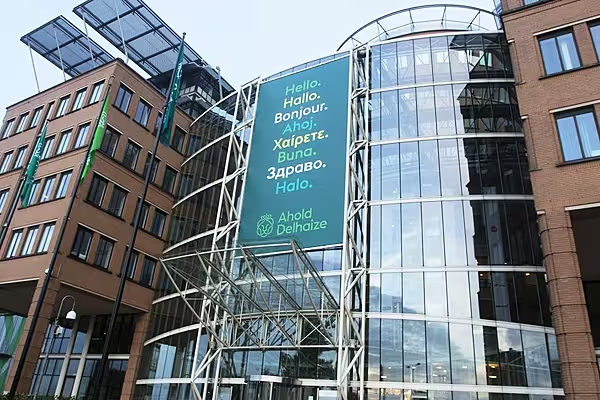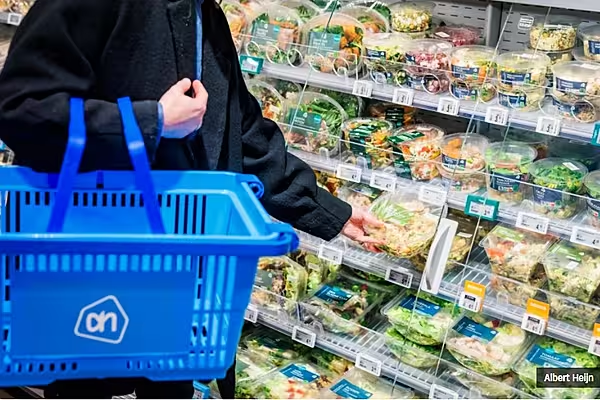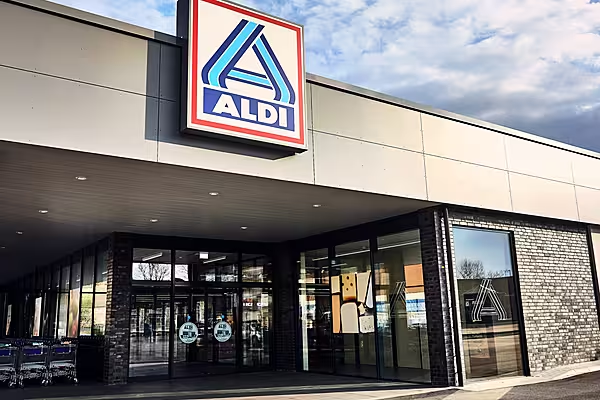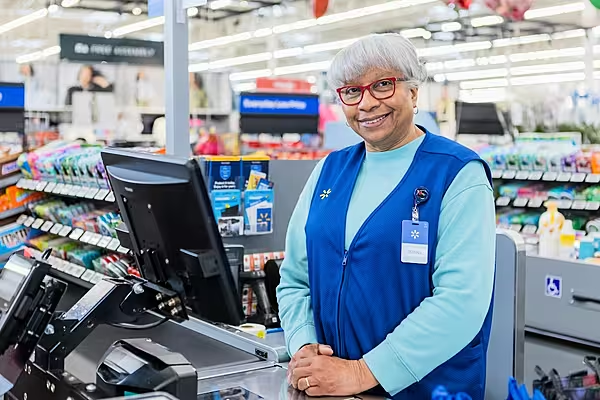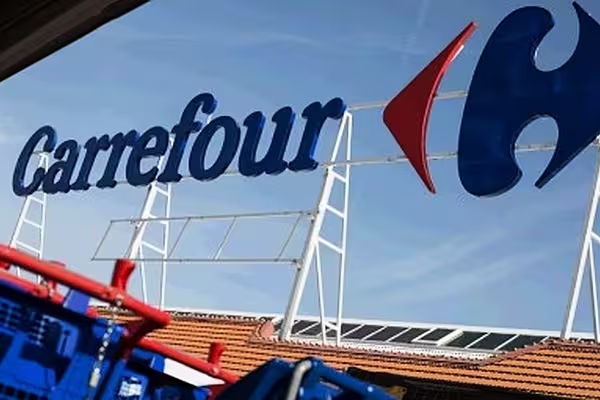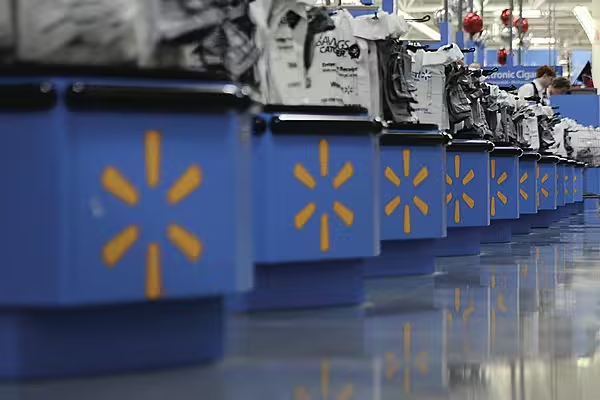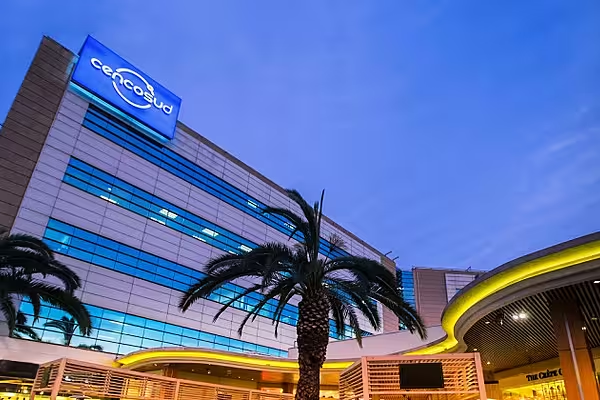Last week, Ahold Delhaize announced how it plans to achieve a net sales CAGR of 4% between 2025 and 2028, as well as generate €9 billion in free cash flow and boost its private-label and omnichannel capabilities.
The pledges, made at the group’s strategy day, held at its headquarters in Zaandam, in the Netherlands, form part of Ahold Delhaize’s new ‘Growing Together’ initiative – the evolution of its previous ‘Leading Together’ strategy – which will enable the business to “realise its growth potential,” according to Frans Muller, chief executive.
ESM was among a handful of publications to be invited along to Ahold Delhaize’s strategy day. Here are our five key takeaways from the event.
1. Private Label Is Crucial To Its Success
Ahold Delhaize is aiming for private label to account for a 45% share of sales across its operations by 2028 – a level that it has already achieved in the Netherlands, where store brands account for 55% of value sales and 62% of volume sales at Albert Heijn.
At group level, own-brand share currently stands at 38%.
As was discussed at the strategy day, Ahold Delhaize has long sought to achieve a ‘diamond standard’ when it comes to private label, with the first Albert Heijn own-brand launching 130 years ago, and it will be leveraging its store brand successes in certain markets to help bolster performance in others.
For example, its Nature’s Promise brand, previously available in the US, has been introduced in Romania for the first time.
According to Wouter Kolk, Ahold Delhaize Europe and Indonesia CEO, the introduction of a ‘price favourites’ own-brand offering – totalling some 2,000 SKUs in the Netherlands and 7,000 on a pan-European basis – has enabled the group to “match the hard discounters in price, quality and design,” while it has also tailored its own-brand offering to each market, “[to] enable us to differentiate better.”
In the US, too, Ahold Delhaize has pledged to “lead, grow and differentiate” its private-label offering, according to US CEO JJ Fleeman.
2. Central And South-Eastern Europe To See Acceleration
Ahold Delhaize’s recent acquisition of Profi, in Romania – which is still undergoing regulatory approval – has lit the touchpaper for what is expected to be significant growth at Ahold Delhaize’s Central and South-Eastern European (CSE) operations.
The division, which includes the group’s operations in Czechia, Serbia, Romania and Greece, will grow ‘faster’ than its Benelux operations in the coming years, incorporating some of the solutions that have worked elsewhere to accelerate growth. Its ‘Gambit’ monetisation tool will be rolled out in Greece, for example.
The Profi acquisition alone, once approved, will position Ahold Delhaize as the second-biggest retailer in Romania, giving the group a ‘ten-year boost’ in terms of growth, by adding 1,600 stores to its network.
“It’s a very discount-dominated region, and we can stand our ground and grow there,” Kolk said of the group’s CSE operations. “So, for us, it’s really interesting because this is where investment in price favourites, in fresh, and in private label, is a recipe that helps us.”
3. Omnichannel Is A Key Focus, Although Online Profitability Remains A Challenge
One of the key messages from the group’s strategy day was that Ahold Delhaize is seeking to drive omnichannel loyalty sales penetration to more than 80% by 2028, with the typical omnichannel customer spending 1.5 to three times more with the retailer in its most mature markets.
However, while the group’s online capabilities have shown significant growth, turning them into a profitable enterprise is proving challenging. As was noted by a journalist at the strategy day, Ahold Delhaize’s previous pledge of achieving online profitability by 2025 was conspicuously missing from its latest announcement – management revealed that 2027 was now a more likely date.
Also, a much-vaunted IPO for its BOL.com operation – the biggest online marketplace in the Netherlands – is also on ice for the moment, with Frans Muller noting that the conditions weren’t currently “favourable” to press ahead with a public offering.
“The plans have not changed, but we have to see when the right momentum is there,” Muller explained. “At this moment, we’re focusing on growing BOL faster, making it more efficient, adding new categories, and doing a better job for our customers.”
In the US, meanwhile, click-and-collect has proven to be a growth phenomenon for the business, as its number of locations has increased from 58 to 1,600 since the start of the pandemic, while same-day delivery is now standing at 99%.
4. AI And Automation Will Play A Key Role In Enabling Cost Savings
Ahold Delhaize recently opened a fully automated Home Shopping Centre in Barendrecht, and, as the group revealed during its strategy day, this is just one example of how automation will help it to achieve a planned €5 billion in cost savings during the 2025-28 period.
AI will also play a key role in this cost reduction strategy, with many back-office functions being automated – but, as the retailer noted, this is unlikely to lead to a reduction in headcount, with Ahold Delhaize determined to upskill its workforce, where possible, to meet the retail challenges of the future.
“If you can automate some tasks, you make jobs more attractive,” Muller explained, noting that as the group has implemented automation in areas such as self-checkouts and logistics, it has also grown its employee count.
“People are looking for different jobs now, particularly younger people,” he said. “This is why we are growing in areas that people expect, from a job content perspective, and automation and AI does help.”
Elsewhere, the company is integrating GenAI to unlock new opportunities, enhance customer experiences, and optimise operations. AI tools, such as dynamic markdowns and adaptive demand forecasting, contribute to efficiency and sustainability. Ahold Delhaize envisions a future with AI-enabled shopping assistants and seamless omnichannel experiences, and an empowered workforce.
According to Ben Wishart, Ahold Delhaize’s chief technology officer, GenAI will enable the business to “unlock previously inaccessible opportunities,” particularly in terms of how to augment the shopper experience.
“In ten years from now, we see a world in which the customer will experience a whole new way of shopping,” Wishart added.
5. Complementary Revenue Streams Offer Huge Potential
The company aims to double its complementary income streams from €1.5 billion to €3 billion, with retail media playing a key role, leveraging customer data to provide personalised shopping experiences, thereby increasing engagement and revenue.
“Our retail media model leads to more personalised offers for customers and a higher conversion rate for marketers,” Kolk noted during the strategy day presentation.
Elsewhere, Jolanda Poots-Bijl, Ahold Delhaize’s recently appointed chief financial officer, spoke about how the group is “committed to sustainable value creation,” focusing its efforts on where it sees growth and returns – a “laser-focused” cost discipline approach backed by data and AI.
Noting that “portfolio excellence” is high on the group’s agenda, Poots-Bijl added that Ahold Delhaize will not shy away from making “necessary interventions” where the portfolio needs it, such as with its recently implemented ‘Belgium Future’ plan and a forthcoming investment in Stop & Shop in the US.
“We believe in simplicity,” she said.
Read More: Ahold Delhaize Pledges To Boost Omnichannel Sales, Raise Private-Label Share To 45%


